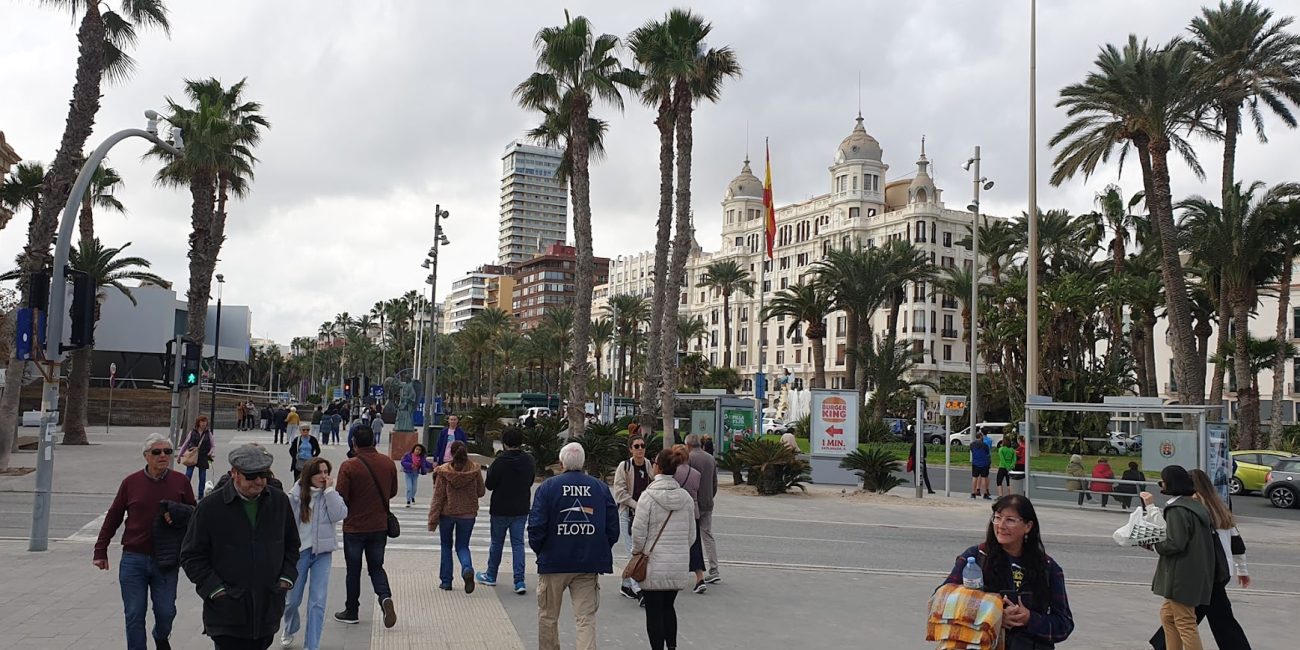In the first half of 2025, 511 people in Alicante were fined for breaking the city’s housekeeping rules. This is the most fines the city has ever had at this time of year, and if the trend continues, the year might conclude with a lot more than the 647 fines that were recorded in 2024, which is the highest number of fines in recent years. This growing trend supports the idea that cities will be more closely watching for littering and other antisocial behaviour in public places, especially when it comes to throwing out rubbish and other objects outside of normal hours.
There are only two fines for not cleaning up dog poop on the roadway
314 out of 511 fines this year, or more than 60%, are for putting rubbish in the wrong container outside of the right hours. This is by far the most common crime in the city, which doesn’t seem to be reduced much by the city’s request to follow evening trash pickup times. The gap between rules and how people act has become a sign of how containers are being misused and the main reason police are focussing on cleaning.
Pee
The other instances are all infractions of the local ordinance that are also crimes. There have been 41 fines for urinating in public and 29 fines for throwing construction debris on the roadway, in vacant lots, or on rural roads. Next, there are fines for leaving furniture, appliances, or garden debris on the street (14 fines) and for tossing glasses or bottles onto the street (another 14 fines). These happen less often, though. People think their neighbourhoods are always dirty because of these behaviours, which are less common than people using trash cans wrong.
There were 511 fines given out between January and June, and 314 of them were for dumping rubbish out at the wrong time
One of the most surprising things is that only two people have been fined for not picking up dog poop in public places. This is a very small number compared to the 511 cases that were reported between January and June, which is only 0.4% of the total.
Municipal data shows that the amount of fines for bad cleaning in Alicante has been going increasing since 2018. That year, 613 fines were given out. In 2019, that number reduced to 569, and in 2020, it dropped to 498, which was when the pandemic hit. The number of cases went up to 546 in 2021, but then went back down to 350 in 2022 and 2023, with 350 each year. In 2024, a record 647 fines were given out. So far in 2025, there have already been 511 fines, which means this year is on course to break last year’s record.
The new law says that the most egregious offences might result in fines of up to 3,000 euros
Luis Barcala, the mayor of Alicante, said last Friday that the city was not clean enough. “I’ll be honest: I’m not happy at all with how clean Alicante is. People are all complaining. “Citizens pay for a service, and they want to get it,” the mayor said at the Alicante Forum. He also talked about how there is an “imbalance between areas” that makes citizens unhappy. Barcala said that the City Council is working on extending the municipal cleaning contract to “substantially improve” the service and address residents’ concerns.
Agreement
The City Council has accepted a change to the cleaning contract that adds five million euros. The municipal records show that the budget has gone up from 323 million to more than 328 million euros to help get rid of trash and other things from public roadways and other areas. Rafael Alemañ, the Councillor for Cleaning, said that nine more staff and five heavy equipment, such as a loader, a tractor, and trucks with tipping trailers and cranes, will be added to fight illegal dumping and make it easier to pick up large amounts of trash.
So far this year, 41 cases have been opened for people urinating in public
The City Council gave out an average of approximately three littering tickets every day from January to June, based on data from the first half of the year. In 2024, they only gave out two tickets a day. The old rules were still in existence until that time, but in May they were superseded by new rules that raise the fines. The accepted text says that violations are either light (with fines up to €750), significant (between €751 and €1,500), or very serious (from €1,501 to €3,000). The fines given out during these months involve all three types of crimes, from throwing trash outside of the hours set aside for it to burning waste or leaving construction debris behind.









No Comment! Be the first one.